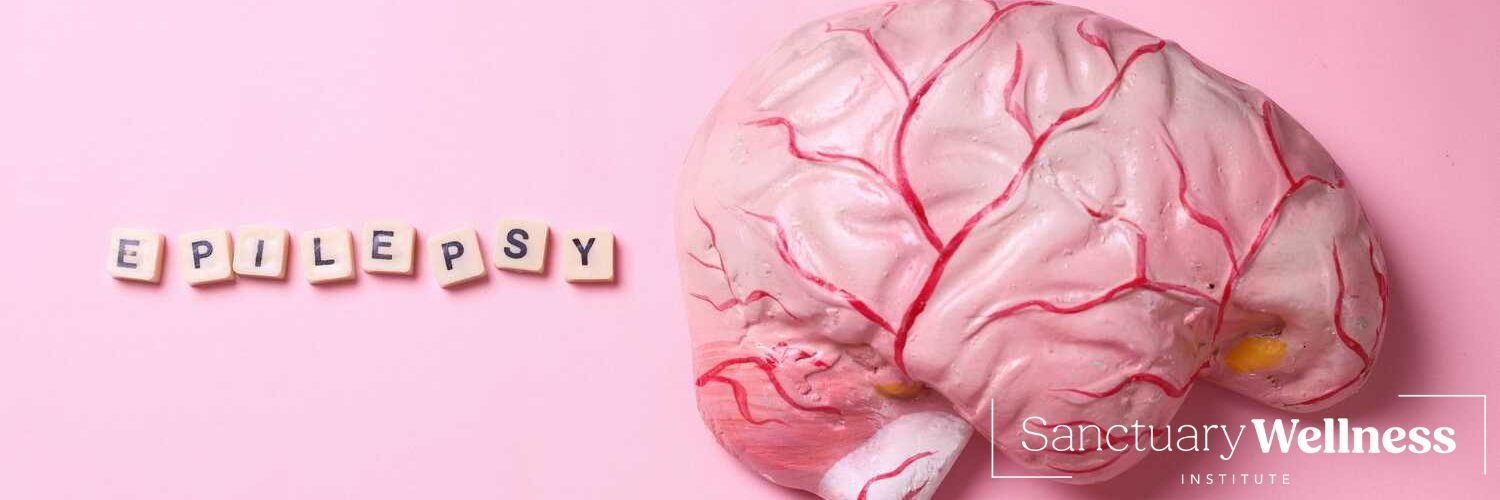Medical Marijuana for Epilepsy & Seizures
- John DiBella
- Published: September 11, 2024
- Fact-checked by Dr. Desiree Granados

Medical marijuana has gained significant attention in recent years, particularly for its potential to treat epilepsy and seizures. With traditional antiepileptic medications often proving ineffective, many have begun using cannabis as an alternative treatment option.
In this article, we’ll explain whether medical cannabis can treat epilepsy, how to get a medical marijuana card for that purpose, and more.
Does Marijuana Help with Epilepsy and Seizures?
Research indicates that cannabis can be used to help treat epilepsy and seizures.
Some studies suggest that compounds found in marijuana, particularly cannabidiol (CBD), may have anticonvulsant properties that can help reduce the frequency and severity of seizures in people with certain types of epilepsy, such as Dravet syndrome and Lennox-Gastaut syndrome.
However, while these results are promising, more extensive research is needed to fully understand the efficacy and safety of medical marijuana for treating epilepsy, as well as to determine optimal dosages and delivery methods.

What Are Seizures and What Causes Them?
Epilepsy is a neurological disorder characterized by recurrent seizures, which are episodes of abnormal electrical activity in the brain. The symptoms of epilepsy can vary significantly from person to person, with some experiencing convulsions or loss of consciousness and others experiencing more subtle symptoms, like twitching or staring blankly.
Seizures in individuals who do not have epilepsy can be triggered by various factors, including high fever, head injuries, low blood sugar, substance withdrawal, or underlying infections. During a seizure, the brain experiences a sudden surge of electrical activity, disrupting normal messaging between neurons.
Seizures can result in falls and injuries, and prolonged seizures can lead to status epilepticus—a serious condition requiring immediate medical attention. Additionally, the unpredictability of seizures can cause anxiety and prompt social isolation.
Can You Get a Medical Marijuana Card for Epilepsy and Seizures?
You can get a medical marijuana card for epilepsy or other seizure conditions in every state that offers medical marijuana. However, rules about eligibility differ from state to state.
Epilepsy and seizures are qualifying conditions for a medical marijuana card in the following states:
- Nevada
- New Hampshire
- North Dakota
- Oregon
- Pennsylvania
- Rhode Island
- South Dakota
- Utah
- West Virginia
In the following states, epilepsy is a qualifying condition for a medical marijuana card. In addition, patients suffering from seizures without an epilepsy diagnosis are eligible as long as their seizures are caused by or associated with some other medical condition or disorder:
- New Jersey
- New Mexico
- Ohio
- Oklahoma
- Vermont
- Washington
The following states do not list epilepsy or seizures as qualifying conditions for medical marijuana but still allow doctors to recommend medical marijuana as a treatment:
- Mississippi
- New York
California and Connecticut only list epilepsy as a qualifying condition, but both states allow doctors to recommend or approve medical marijuana for any appropriate condition. If you suffer from seizures without an epilepsy diagnosis, you’re probably eligible for medical marijuana with a doctor’s approval.
Massachusetts does not list epilepsy or seizures as qualifying conditions, but doctors may approve medical marijuana for patients suffering from chronic, serious conditions like seizures.
In Mississippi, a certified medical cannabis doctor must diagnose you with a “Chronic, terminal or debilitating disease or medical condition, or its treatment” that produces seizures.
New York, Virginia, and Washington D.C. don’t hold patients to specific qualifying condition lists. Instead, doctors have the latitude to approve medical cannabis for any condition, including seizures and epilepsy.

How to Use Marijuana for Epilepsy and Seizures
Some of the most effective marijuana consumption methods for epilepsy and seizures include:
- Vaporization: Vaporization involves heating marijuana to a temperature that releases cannabinoids without burning the plant material. This method is quick-acting and minimizes harmful smoke inhalation.
- Tinctures: Tinctures are concentrated liquid extracts made from cannabis, often taken sublingually (under the tongue) for rapid absorption. They allow for precise dosing and can be added to food or beverages.
- Edibles: Edibles are food products infused with cannabis, such as gummies or baked goods. They provide longer-lasting effects but can take longer to kick in, making it important to dose them carefully.
- Oils: Cannabis oil can be consumed directly or used in cooking. High-CBD options are popular for their therapeutic effects.
- Topicals: Topicals are creams and balms infused with cannabis that are applied directly to the skin. While they do not produce psychoactive effects, they may help with localized pain or discomfort.
At The Sanctuary, we recommend consulting a medical marijuana doctor to determine the best marijuana consumption method for your epilepsy/seizures.
What Are the Best Marijuana Strains for Epilepsy?
Generally speaking, indica strains are likely to be more effective for seizures than sativa strains since their effects tend to be more calming and relaxing. That said, the same strains can affect different users in different ways, so it’s important to experiment to find the best ones for you.
Some of the most effective marijuana strains for treating epilepsy and seizures include:
- Charlotte’s Web: Known for its low THC content and high CBD levels, this strain is widely used in treating seizures in children.
ACDC: This strain typically has a 20:1 CBD to THC ratio, making it highly effective for seizure management. - Harlequin: With a 5:2 ratio of CBD to THC, this strain provides therapeutic benefits with mild psychoactive effects.
- Pennywise: This strain contains a 1:1 CBD to THC ratio, which is why it can help reduce seizure frequency while providing a calming effect.
Granddaddy Purple: Known for its soothing properties, this strain may help with anxiety and promote restful sleep in users with epilepsy. - Northern Lights: This strain is often used for its calming effects and potential to reduce the frequency of seizures.
Conclusion
In conclusion, while medical marijuana may be able to help treat epilepsy and seizures, it’s important to take the proper precautions before using it for that purpose. Understanding the legal landscape, knowing the best consumption methods, and identifying effective strains are all crucial. And as always, be sure to consult a qualified physician before using cannabis for seizures.
If you want to use medical cannabis to treat epilepsy, seizures, or another qualifying condition, The Sanctuary Wellness Institute can help. Not only can we connect you with a medical marijuana doctor, but we can guide you through the process of applying for an MMJ card in your state.
States Where We Offer Medical Marijuana Card Services
How we reviewed this article:
- Anup Patel and Elaine Kiriakopoulos (2019). Medical Marijuana
https://www.epilepsy.com/treatment/alternative-therapies/medical-marijuana - Mayo Clinic (2023). Epilepsy
https://www.mayoclinic.org/diseases-conditions/epilepsy/symptoms-causes/syc-20350093 - Cleveland Clinic (2024). Seizures
https://my.clevelandclinic.org/health/diseases/22789-seizure
Current Version
September 11, 2024
Written By
John DiBella
Fact-checked By
Dr. Desiree Granados
Editorial Process
Our Editorial Process
Other Posts About Medical Marijuana Treatment

John DiBella is the co-founder and CEO at The Sanctuary Wellness Institute. His goal is to foster healthier lifestyles to improve individuals’ quality of life and health span through online medical and non-medical services. When he’s not writing health & wellness articles for The Sanctuary, he enjoys hiking, camping, surfing and sailing.







